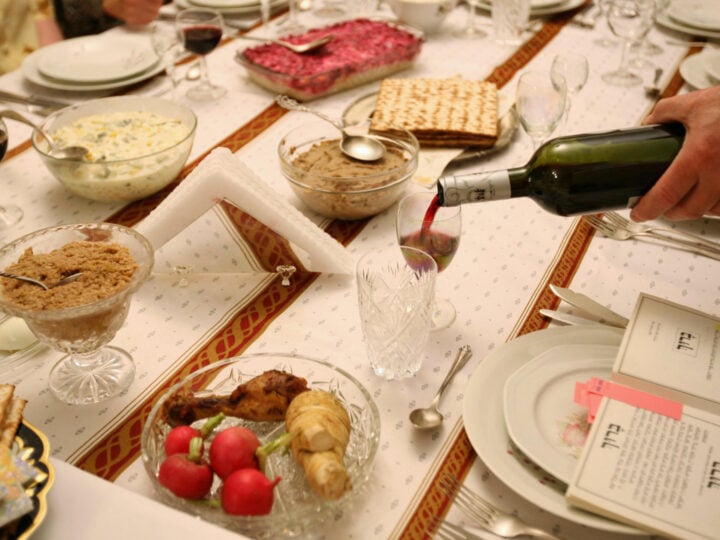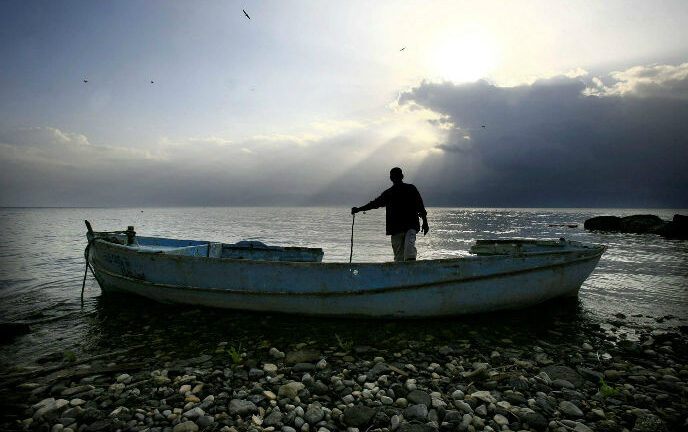A family-run boutique winery in Israel wins top marks and furthers the fame of world-class wines from the fertile soil of this ancient land.
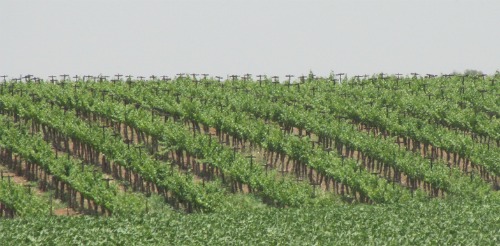
In 1882, Baron Edmond de Rothschild founded the Carmel Winery, Israel’s first commercial winery. Just over 100 years later, Israel saw its second wine revolution with the opening of the Golan Winery, which transformed Israel’s image as a purveyor of sweet wines primarily for ritual use to a source of wines for weekday enjoyment.
The third revolution was in 1998 with the rise of the small boutique wineries. And at the forefront of the latest crop of international award winners from Israel is the family-owned Flam Winery in the Judean Hills, just outside Beit Shemesh.
If Carmel is still the big brother of Israeli wineries – producing some 15 million bottles a year – Flam, with its 100,000 bottles, is just a tipsy fly on a bubbly windshield. But that fly is racking up some impressive scores from influential wine writers.
The winery’s CS Reserve Cabernet Sauvignon received a 90 (out of 100) score from Robert Parker, publisher of the Wine Advocate.
Dean of the Israeli wine press, Daniel Rogov, gave the wine an even higher ranking, at 94, describing the Cabernet Sauvignon as having a “deep, almost impenetrable garnet in color, with spicy oak on the nose showing only gently in the glass. On the nose and palate wild berries, blackcurrants and spiced plums, all on a background that hints at one moment of garrigue and another of roasted herbs.”
A family affair
Piqued your oenological curiosity? The Flams would be glad to show you around.
Founded by two brothers – Gilad and Golan Flam – along with their mother, Kami, who handles business operations, the winery is in the classic Italian tradition, Gilad tells ISRAEL21c. “We’re not looking for blockbusters. We want more elegant wines.”
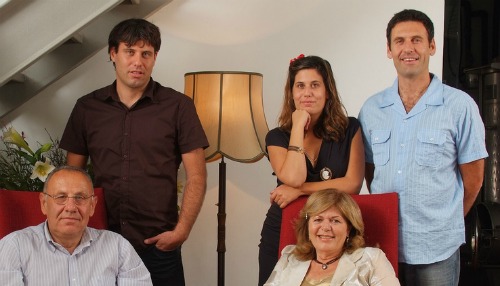
Golan is the winemaker in the family. He studied agriculture at Hebrew University and continued his studies for a master’s degree in viticulture and oenology in the Piacenza University near Milan, Italy. He interned at the Carpineto Winery in Tuscany, then moved to South Australia, which has similar weather conditions to Israel.
Gilad describes the difference. “The soil here is more chunky, while in the Golan it’s mostly volcanic. The temperatures in the Judean Hills are also more moderate, which makes for a more premium wine.”
Nevertheless, the Flam Winery maintains a couple of vineyards up north. “Neither is bad or good. It’s just a different taste,” he adds.
Israeli palates have matured
The explosion in small boutique wineries in the last 10 years corresponds with the increase in Israelis traveling abroad, where they’ve been discovering fine European wines as well as more exotic types of food. The changes in the wine industry have gone hand in hand with Israel’s restaurant revolution, which has transformed a country once known for its hummus and kebab to an innovative culinary powerhouse.
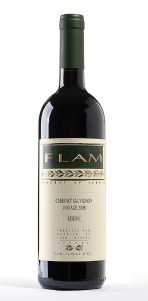
The Flam family’s roots in wine go way back. Their father, Israel Flam, was the chief winemaker at Carmel for 35 years.
“He was the first Israeli to study at the University of California at Davis,” Gilad says. It was a professor from that school who arrived in Israel in the late 1970s and declared that the Golan Heights could produce wine and not just apple juice.
Ironically, the wine master was not initially supportive of his sons’ business venture. “In 1998, there were only four to five boutique wineries in the whole country. He was afraid we were going to lose all our money,” Gilad says.
The brothers hedged their bets by simultaneously opening HaGefen, a wine import and distribution business. It’s the latter that turns a profit. Gilad heads HaGefen, where he is also responsible for getting the winery into international shows (“we do about three a year in the US and one show each in Paris and London”), while Golan manages the winery.
Of the winery’s 100,000 bottles, 80 percent are purchased within Israel. The Flams’ goal is to sell 40% of their wine abroad.
The Flam Winery started out non-kosher, and only started its first kosher run in 2010. “After 12 years, we thought, ‘We’re making good wines now; we can look at making it kosher,'” says Gilad.
This was more of a business decision than a religious one, since non-kosher wine doesn’t sell for Jewish holidays and precludes a large market. “Being kosher will help us work without any borders.”
Flam is one of nearly 250 boutique wineries now operating in Israel. Tulip is another notable family-run establishment, and Carmel’s Yatir boutique winery gets rave reviews from Parker. While many are located in Israel’s northern Galilee and Golan Heights regions, most of Flam’s vineyards are close to Jerusalem.
The competition doesn’t faze Gilad. With an MBA, he could have gone into any kind of business and made a lot more money. But, he says, “I didn’t want to sit in an office in Herzliya.”
And despite living in Tel Aviv (“so my wife can be close to her work”), it’s the countryside he relishes. “As Israelis, we have a real attachment to the land.”
That’s a good thing for connoisseurs in Israel and beyond who are becoming increasingly interested in world-class wines from the fertile soil of the land of Israel.














